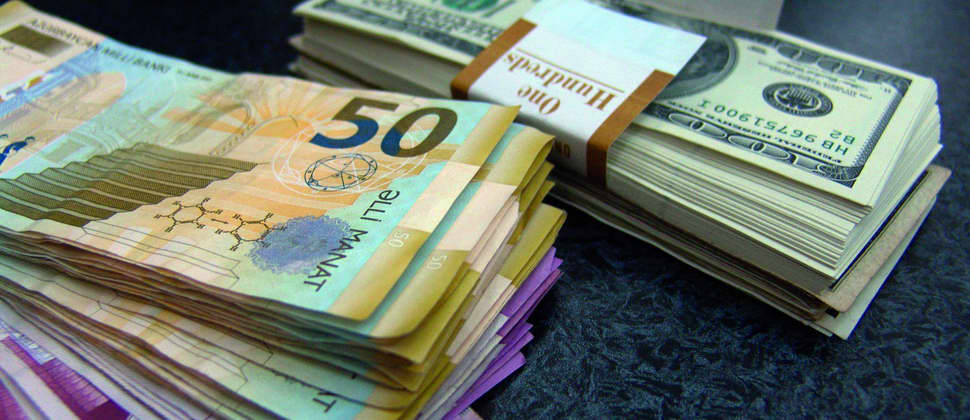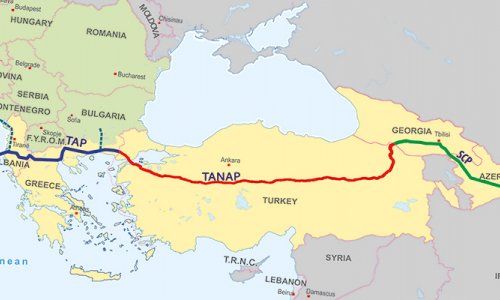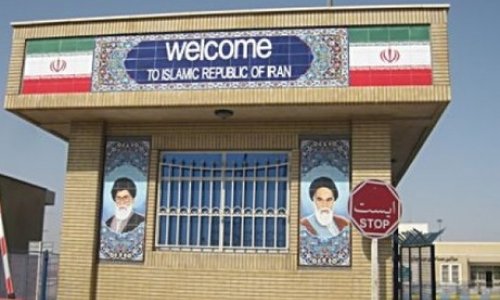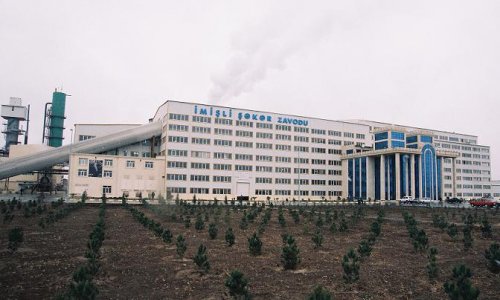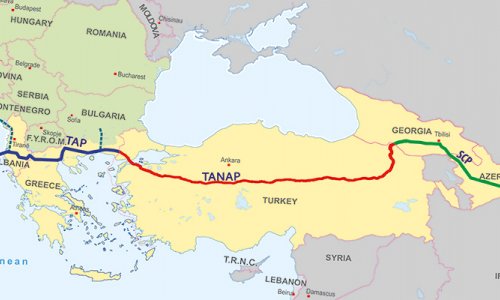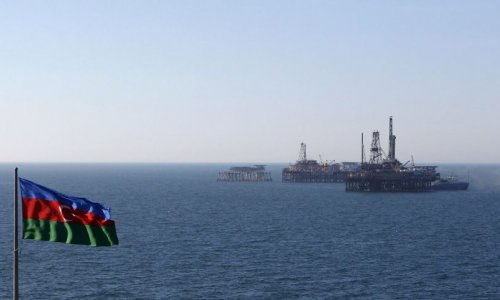Azerbaijan's central bank said on Thursday it had banned the sale of foreign exchange in standalone bureaux de change run by commercial banks in a further move to support the oil exporter's faltering currency, the manat.
The initiative, outlined by a bank spokesman, was taken with the recent plunge in oil prices exerting huge pressure on the public finances and currencies of oil-dependent countries in the former Soviet Union, raising the risk of social unrest.
The interior ministry said on Wednesday police and soldiers had detained 55 people earlier this week for holding unsanctioned protests. It described those arrested as "radical" political activists and religious extremists.
"Azerbaijan's economy is not so much heading as hurtling towards a crisis," said Chris Weafer, a senior partner at Macro Advisory in Moscow.
Oil and gas account for 75 percent of the Azeri state's revenues. The central bank has been tightening restrictions on sales of foreign currency since cutting the manat loose last month after Russia and Kazakhstan took similar steps to try to preserve their reserves.
Exchange bureaux in Turkmenistan, a major ex-Soviet gas producer, also stopped selling foreign currency this week.
The price of benchmark crude oil has now fallen almost 75 percent since June 2014 to below $30 a barrel.
Such a steep fall inevitably raises pressure on Azerbaijan's political system.
President Ilham Aliyev's party swept the board in a parliamentary election in November, a vote the mainstream opposition and international monitors shunned.
Rights groups accuse the government of curbing freedoms and of silencing dissent, while the opposition complains of harassment, a lack of access to air time and draconian restrictions on campaigning. The government denies wrongdoing.
In Baku, the Azeri capital, many currency exchange booths had stopped operations before the central bank publicised its ban. One booth owner, who declined to be named, said he had closed three days ago. "The central bank sent a letter with an order to close all bureaux de change," he said.
The central bank had already said this month that anyone wanting to buy over $500 must present their identity card. A Reuters reporter on Thursday saw a queue of around 250 people at one bank trying to exchange currency.
On Wednesday, the bank set an exchange rate of 1.5706 manats per U.S. dollar, valid until Friday. Street dealers in Baku were, however, offering a rate of 1.8 on Thursday.
"It (Azerbaijan) is a small, narrow economy that is fully dependent on oil, and now, when oil is falling again, the devaluation they did in December is not big enough," said Per Hammarlund, chief emerging markets strategist at SEB.
"I suspect there is more to come."
GROWTH UNDER THREAT
Azerbaijan's 10-year dollar bond, which matures in 2024, lost more than 1.5 cents on Thursday to trade at a record low of just above 90 cents.
Meanwhile the yield premium over safe-haven U.S. Treasuries blew out past 540 bps, having risen 70 bps this year alone.
Dollar debt issued by the state energy company SOCAR traded lower across the curve, with the 2023 and 2030 bonds trading at record lows in the low 80s.
The cost of insuring the sovereign debt of oil-producing countries across emerging markets has soared in recent weeks.
Russian 5-year credit default swaps (CDS) have gained almost 30 basis points, or more than 18 percent, since the start of the year, while Kazakh CDS have ballooned by 10 percent over the same period, according to financial data provider Markit.
No prices were available for Azeri CDS.
The economy of Azerbaijan, whose 2016 budget is based on an oil price of $50 per barrel, grew only 1 percent last year. It plans to revise its budget and cut spending, something Russia, its neighbour and the world's top oil producer, is also contemplating.
Azeri authorities decided to withdraw support for the manat on Dec. 21 after burning through over half the country's foreign currency reserves in an effort to defend it against the impact of falling oil prices. That triggered a plunge of 32 percent against the dollar.
The central bank this month widened the exchange rate corridor within which banks can buy and sell the manat to 4 percent either side of its official rate from 2 percent.
"Only six months ago, we expected that the economy would grow by 2.5 percent in 2016," said Macro's Weafer. "But now, that forecast is cut to about 0.5 percent and even that number looks vulnerable."
www.ann.az
Follow us !

